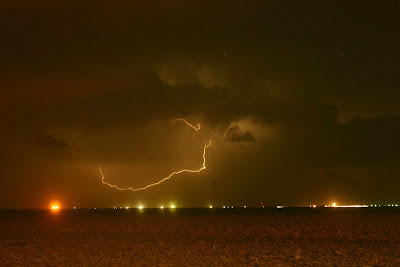
Tomorrow is the day we celebrate a major historical event, our nation's founding. John Adams wrote to Abigail, his wife,
It ought to be commemorated as a day of deliverance by solemn acts of devotion to God Almighty. It ought to be solemnized with pomp and parade, with shows, games, sports, guns, bell, bonfires, and illuminations from one end of this continent to the other...
As I was reading Richard Barcellos' article, New Testament theology of the Sabbath, Christ, the change of the day, and the name of the day, I noticed a similar idea that made for great conversation with my wife and children. (
This article is in the 2008, volume 1 issue of the Reformed Baptist Theological Review).
Why do we celebrate holidays? Nothing significant is in reality happening tomorrow. No Red Coats are marching through our towns. There are no true Patriots setting the sparks of freedom throughout the country side. General Washington's troops are long gone. Most Americans may be unaware of any historical significance, especially our smaller children (I am thinking of Jacob, my almost 3 year-old). For the next few years Jacob may not understand the reality of Independence Day, but he will intuitively know something is important about this day and its meaning.
Easter, Memorial Day, 4th of July, Thanks Giving and even Christmas are all really memorial days that point to a real event in history. Something really happened that we celebrate and identify. Americans do not celebrate Cinco De Mayo (unless you are from Mexico) because most of us do not identify with such a historical reality. We do identify and are in union with Washington and all of those that gave birth to the greatest nation on earth. The memorial is directly tied with its historical reality.
Richard Barcellos' article points out similar and parallel thoughts to the Lord's Day. As he wrote on page 55,
...as the old Sabbath both looked back to creation and forward to an eternal rest, so the New Covenant Sabbath looks back to the inauguration of the new creation and forward to an eternal rest.
Barcellos cites Sam waldron on the observance of the Sabbath and its historical basis, the resurrection of Jesus Christ.
The New Testament teaches, therefore, that there is a new creation in Christ. The idea of a new creation is frequently associated with Christ's resurrection. By union with Christ in His death, the old man is destroyed. By union with Christ in His resurrection, the new man is created. When He rose again He became the firstborn of God's new creation. As He was the beginning of the old creation, so He is now the beginning of the new. Thus, the memorial of Christ's resurrection is of necessity a memorial of the new creation. Thus, the Lord's Day like the Sabbath and unlike any other religious observance points to both creation and redemption. (-emphasis mine)
In conclusion, I am attempting to make the brief case for the reality of the resurrection of Christ. We know and have every reason to believe that Jesus was truly raised from the dead and is the beginning of the new creation. Why? Because every Sunday for the last two thousand years, Christians in every location and every generation (with some exceptions) have celebrated this major historical event by gathering together on the Lord's Day or Sunday, the first day of the week.
Richard Gaffin is quoted in the article on the nature of our resurrection with Christ's,
...Paul views the two resurrections not so much as two events but as two episodes of the same event.
Barcellos adds,
Christ's resurrection is the most powerful sign of the age to come.
As we gather together to celebrate the 4th of July and our nation's independence, keep in mind of the historical reality that has given us the freedoms and liberties that no nation has on earth today. As we gather together this Lord's Day, Sunday, let us celebrate the historical reality that is the basis for its observance. Perhaps not with fireworks, but celebrate it as the Lord commands with singing, prayer, preaching, baptisms and the memorial of the Lord's Supper.
We may be as certain of the resurrection of Christ and the new creation as we are with Independence Day.
































